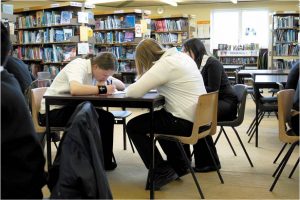
Following the recent Newsround interview with my good friend and colleague Lorna Taylor from BackCare, many teachers and parents will be wondering what to do about the heavy schoolbags and poor quality seats that damage children’s necks and backs and reduce their ability to pass exams. So here are some links and top tips on the impact that heavy schoolbags and cheap plastic seats have on children.
Facts about children and back pain:
- 21% of children experience backpain by age 16. 15% of children under age 16 seek medical attention to deal with it.
- A typical carry-load for a Year 7 girl can be over 20% of her body weight. 30% is not uncommon. Doctors recommend 10-15% as a maximum for adults.
- By law, teachers are not allowed to use student-type plastic chairs as their main work seat. The Health and Safety Executive says they are dangerous for long term use by employees.
- However, children in school receive no such protection as they are deemed to be visitors. Accordingly, schools are free to require them to spend six hours a day sitting on seats designed only for short term and occasional use.
- UK spending on school furniture is 10% of the EU average.
- According to the British Educational Suppliers Association, “No EU country will purchase typical UK manufactured fixed height school furniture”.
- Half of all adults aged 18-34 now report that they have back pain, with a quarter of them saying it affects their ability to work.
- Research conducted in Finland showed that height adjustable furniture led to significantly improved pass rates. (‘Adjustable tables and chairs: correct posture and lower muscle tension and pain in high school students’ by Hanninen and Koskelo, University of Kuopio, Finland)
As a former Trustee and Acting CEO of BackCare, I launched the ‘Back to School’ campaign to focus on the impact that badly designed furniture and heavy schoolbags have on children’s health and ability to learn. The campaign was picked up by ITV, the Sunday Express and the Daily Mail amongst others. Today, as Chair of Pain UK and as an Education Fast Forward fellow, working with Cisco and Promethean, I work with many local authorities and individual schools to raise awareness of this issue and advise on how improvements can be made. Professor Stephen Heppell has said (inaccurately, but generously) that I “know more about the effect that furniture has on children’s learning than anyone else in the world”.
Training teachers and school leaders to fully appreciate the impact that heavy bags, furniture, systems and cultural attitudes has on the long term health and future academic success of students can be completed in as little as half a day, or conducted as a whole school project over a term. The latter allows us to involve every child and member of staff in the school and to deploy our Foresight/ Insight/ Hindsight model:
- Foresight: if we were to remodel our learning spaces, systems and equipment to bring it fully in line with the very best existing practice (or even create a world first solution), what would it look like?
- Insight: how well does our existing learning environment support the individual learner in his or her main task? What changes are needed to bring it up to a specific minimum performance level?
- Hindsight: what can we do to improve performance given very little scope for making new purchases?
We can also offer advice on how to purchase new furniture so that significant savings are achieved.
Click on the links to the right to learn more about the impact that heavy bags are having on children’ health. Click here if you would like to arrange a consultancy session or simply want more information. And don’t forget that BackCare sells a schools pack containing lots of information on how to protect young people’s backs.